Wildfire smoke leads to air quality warnings for much of Manitoba this weekend
Winnipeg Youth Soccer Association moves games indoors, Fringe Festival provides masks to volunteers
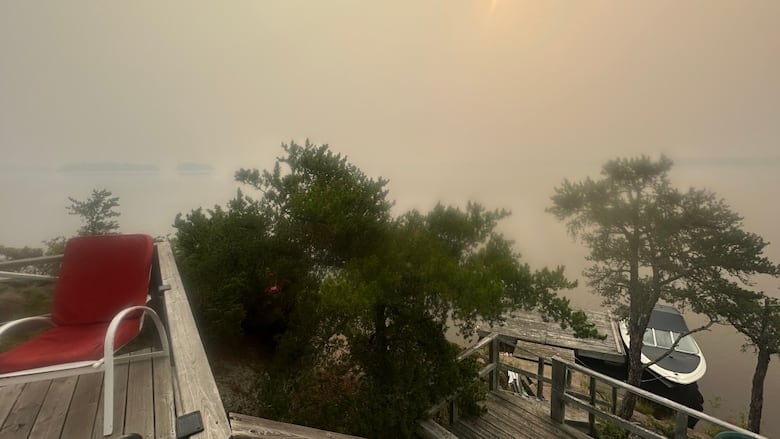
Smoke billowing from wildfires is leading to poor air quality and reducing visibility throughout most of Manitoba this weekend.
Environment and Climate Change Canada issued warnings Saturday morning for a large swath of the province, including Winnipeg and Brandon in the south, the Interlake and Thompson in the north.
"We have asthma so we try to just like think about how our chest is feeling … and go from there," Aleecia Doyle said of she and her son, Liam Doyle. The pair ventured to Old Market Square to catch some of the entertainment for Winnipeg Fringe Theatre Festival opening weekend.
"The smoke has been coming and going so we figured we'd come out and then we went to an inside show and then we walked down [to Old Market Square] because it was clear, it's not really affecting us that much."
The warnings advise people to limit their time outside and reschedule any outdoor activities due to the poor air quality.
Environment Canada, the federal agency responsible for monitoring air quality, extended the warning to Winnipeg just before 9:30 a.m. It was extended to Brandon as well shortly after.
Winnipeg's air quality health index began at Level 2 (low risk) on Saturday morning, but had climbed to the "very high risk" 10+ level by noon. It's forecast to remain in that range Sunday as well.
WATCH | Smoke prompts air quality concerns across Western Canada:
Chuck McEwen, executive director of the Fringe, said the festival hasn't had to deal with smoke like this for years.
They've put out posts on social media advising festival-goers to take precautions.
Some volunteers initially scheduled for outdoor shifts had requested to be moved to indoor venues Saturday, said McEwen.
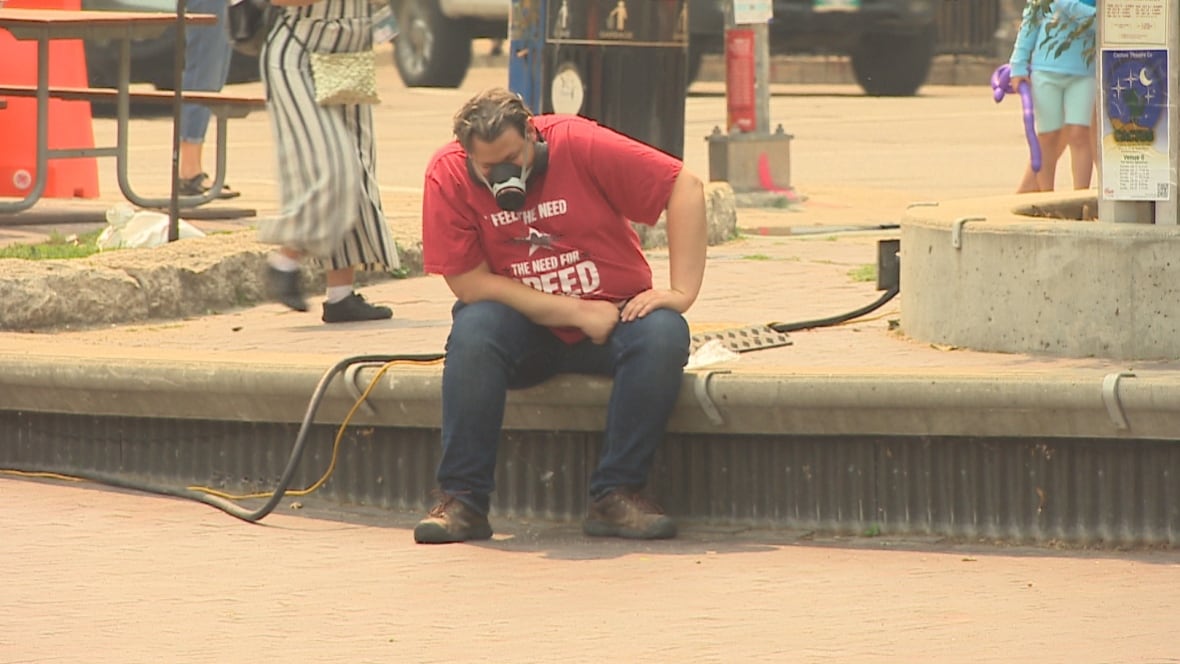
"We're providing masks when needed, they're at all of our outdoor locations as well as our volunteer hospitality centre, and same for our staff, acts have access to KN95 masks," said McEwen.
"We're trying not to cancel performances, so we're letting the artist decide whether they are able to perform. And if that's the case, then then that's fine."
Soccer moves indoors
The poor air quality forced the Winnipeg Youth Soccer Association to move 12 recreational playoff matches indoors after the championship had already kicked off mid-morning Saturday.
The change in air quality Saturday morning "happened very quickly," said Scott Dixon, the organization's executive director.
Three games had already been played on Saturday when the air quality started deteriorating beyond acceptable levels, and remaining games were moved into the Winnipeg Soccer Federation South complex at the University of Manitoba.
"Within 15 to 20 minutes, we needed to assess the situation, make the call and then start making arrangements," said Dixon.
Under guidelines from the Manitoba Soccer Association, when the air quality index rises beyond Level 7, or high risk, outdoor events have to be either rescheduled, cancelled or moved indoors to keep participants safe, Dixon said.
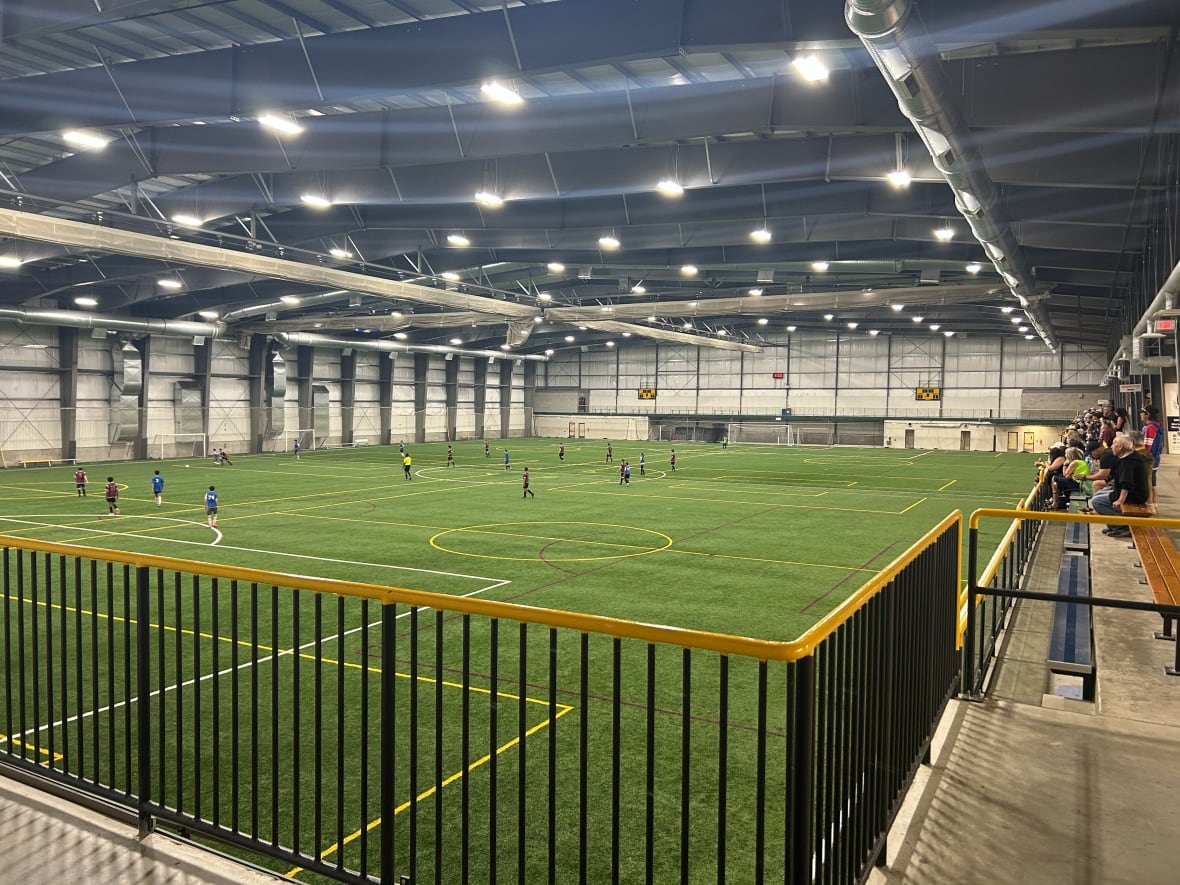
Around 750 participants, including coaches and players between the ages of 13 and 18, are registered for Saturday's games, Dixon said. One game was delayed due to the changes, but the rest of the championship is back on track.
Saturday's championship was the third Winnipeg Youth Soccer Association event that has been affected by wildfire smoke so far this summer, and some night league matches have also been cancelled, Dixon said.
"I don't see this issue going away anytime soon, just with how dry things are year after year," he said. "I would love to be wrong about next year. Hopefully, we won't have to have this conversation."
Health concerns with 'cumulative exposure'
Christopher Pascoe, a University of Manitoba professor whose research focuses on chronic respiratory diseases, said exposure to air quality at the 10+ level can be harmful to anyone, whether you have underlying health conditions or not, in a relatively short period of time.
It can produce symptoms like a sore throat and eyes, coughing and sneezing, and feeling generally unwell, he said.
"The concern becomes kind of that cumulative exposure over time, where now we're talking about weeks on end in the summer," Pascoe said.
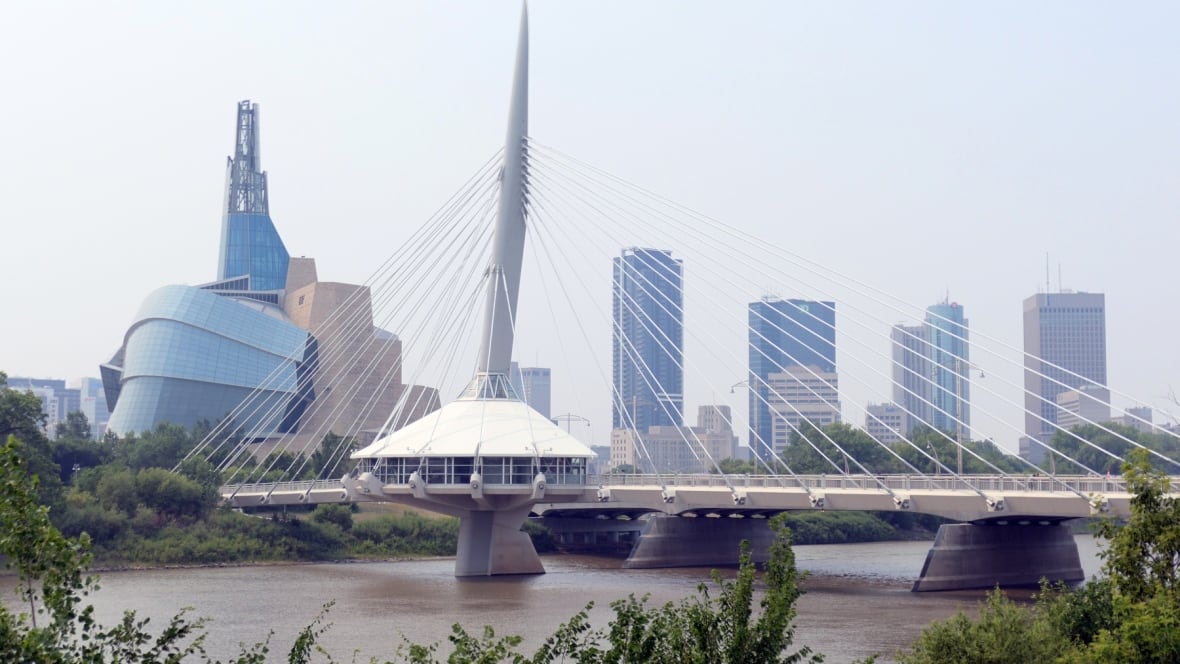
The situation worsens in high heat for those who don't have air conditioning, forcing them to open doors and windows to cool down, and in turn filling their house with smoke.
Another concern is the kind of particles in the air, Pascoe said. The smoke often billows from burned brush or trees, but in some cases, wildfires have razed buildings. The materials they are made from produce smoke with a different composition, said Pascoe.
"We don't know a lot of those health effects yet. We're still trying to learn a lot about it," he said.
Environment Canada is advising people to keep windows and doors closed as much as possible. If you need to spend time outdoors, the federal agency recommends limiting it as much as possible, but even with reduced exposure, there can still be a risk to health.
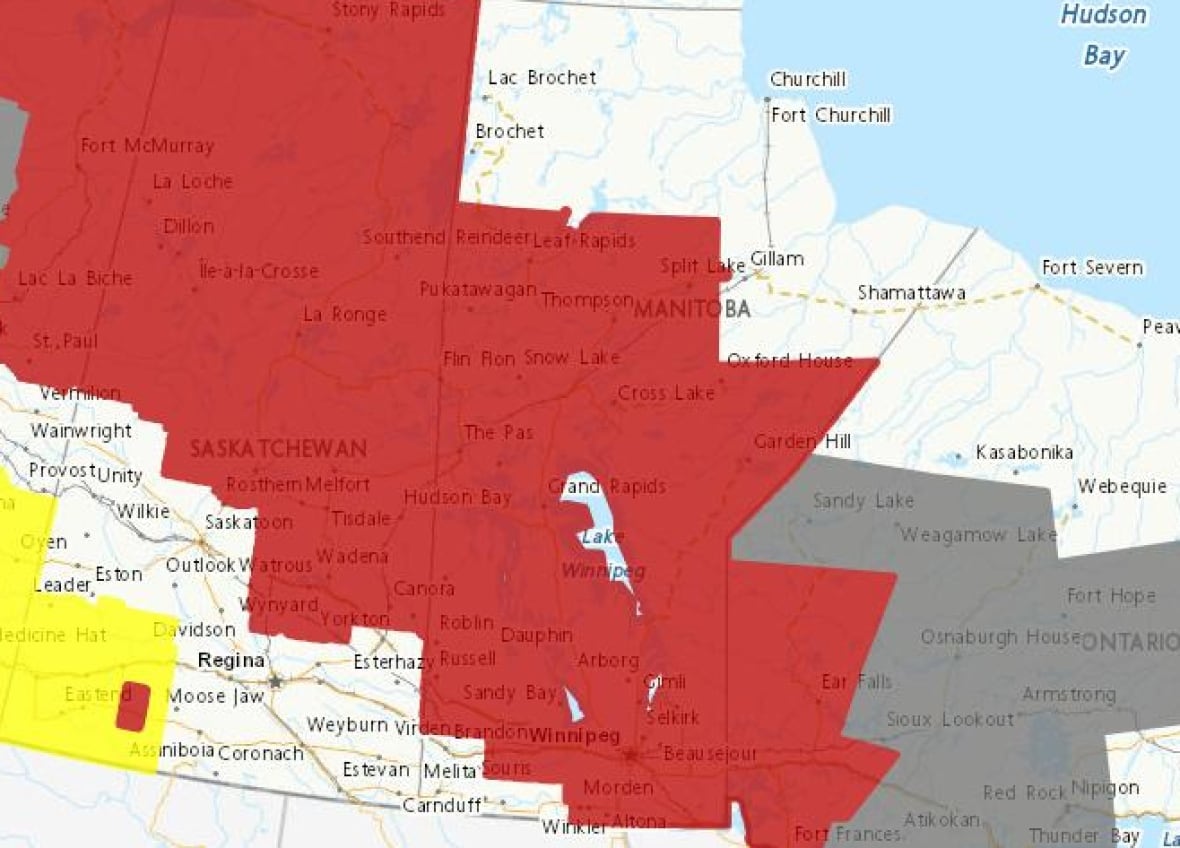
The smoke is drifting from a number of wildfires in Manitoba that have forced the evacuation of thousands and led the province to declare its second state of emergency for the season.
According to the province's latest fire bulletin, issued Friday, the Manitoba Wildfire Service was responding to 122 active wildfires across the province, which has seen a total of 317 wildfires to date, well above the average for this time of year of 231.
With files from Bryce Hoye and Gavin Axelrod


